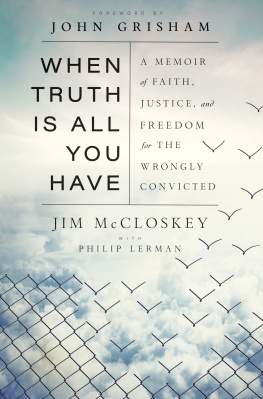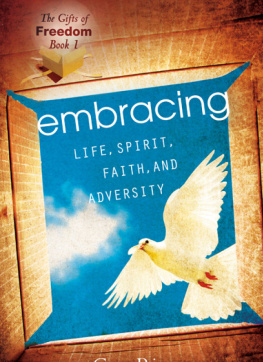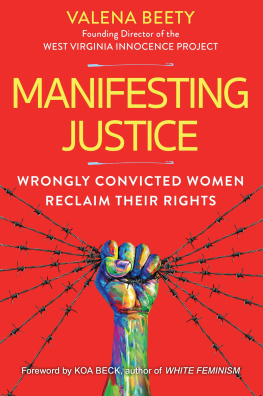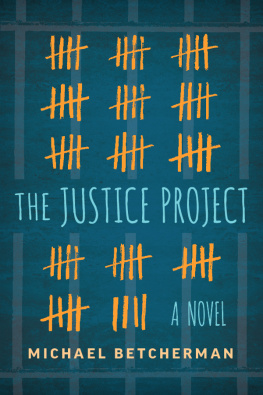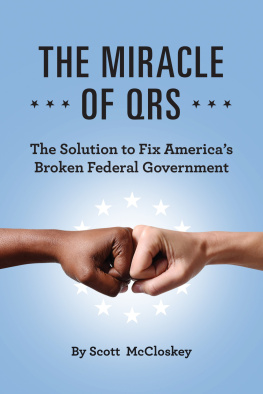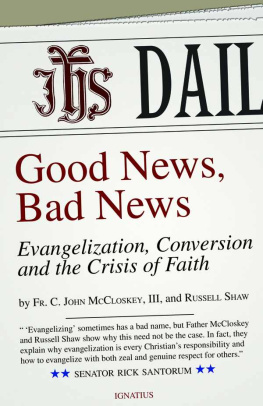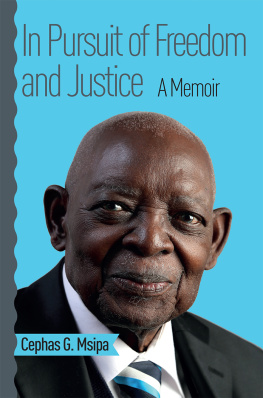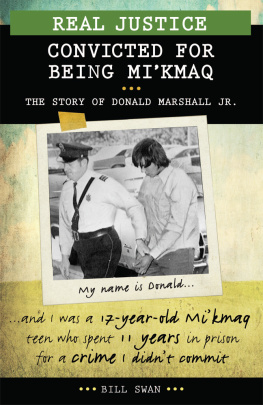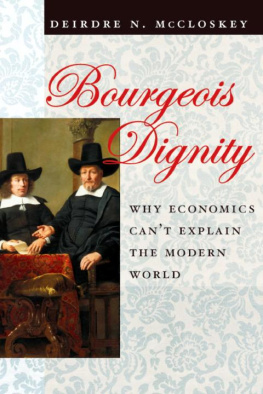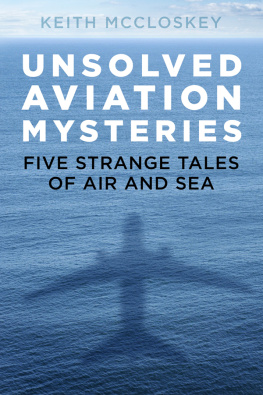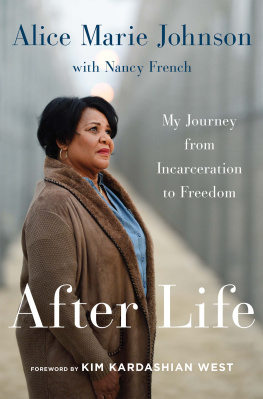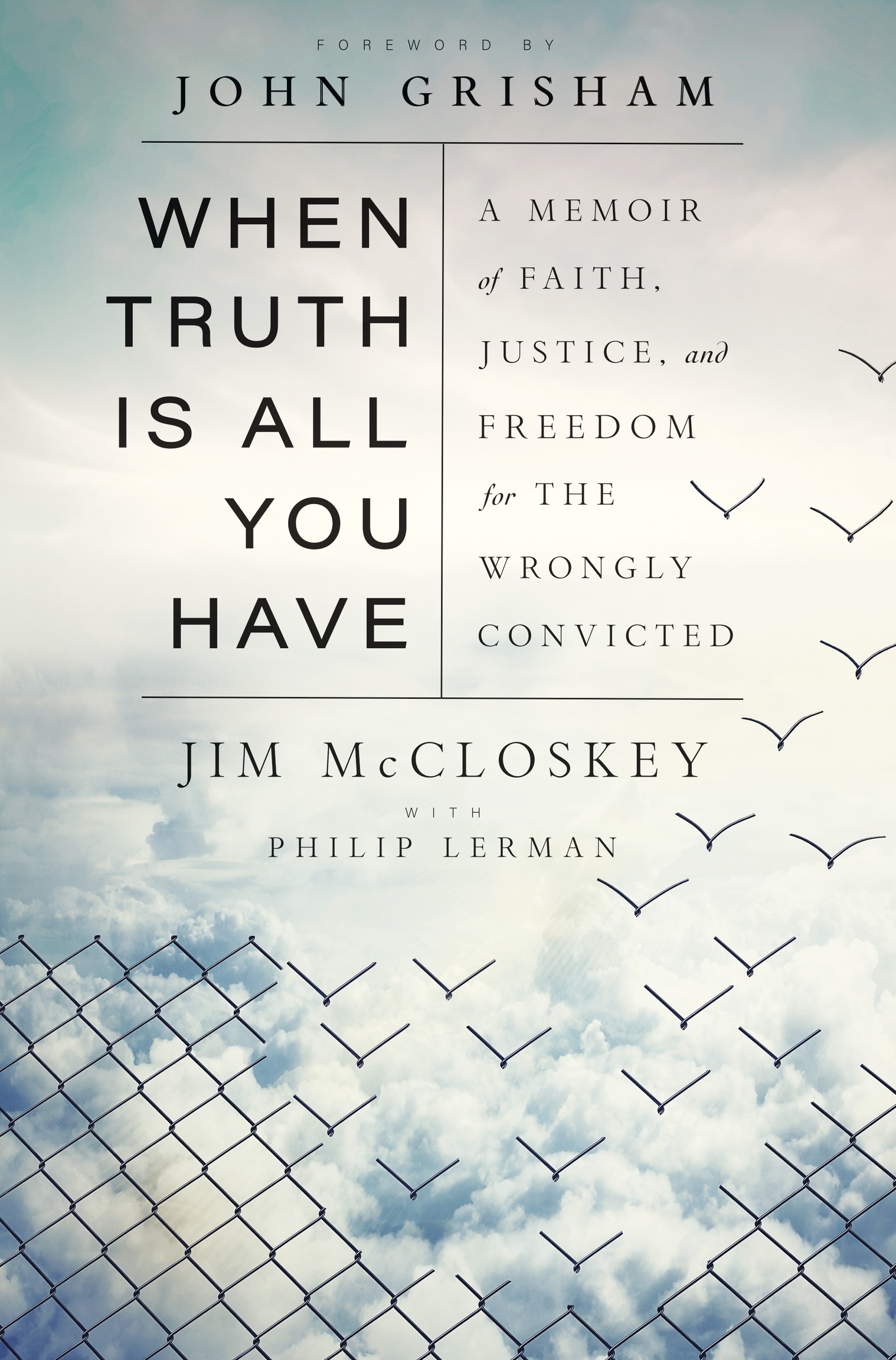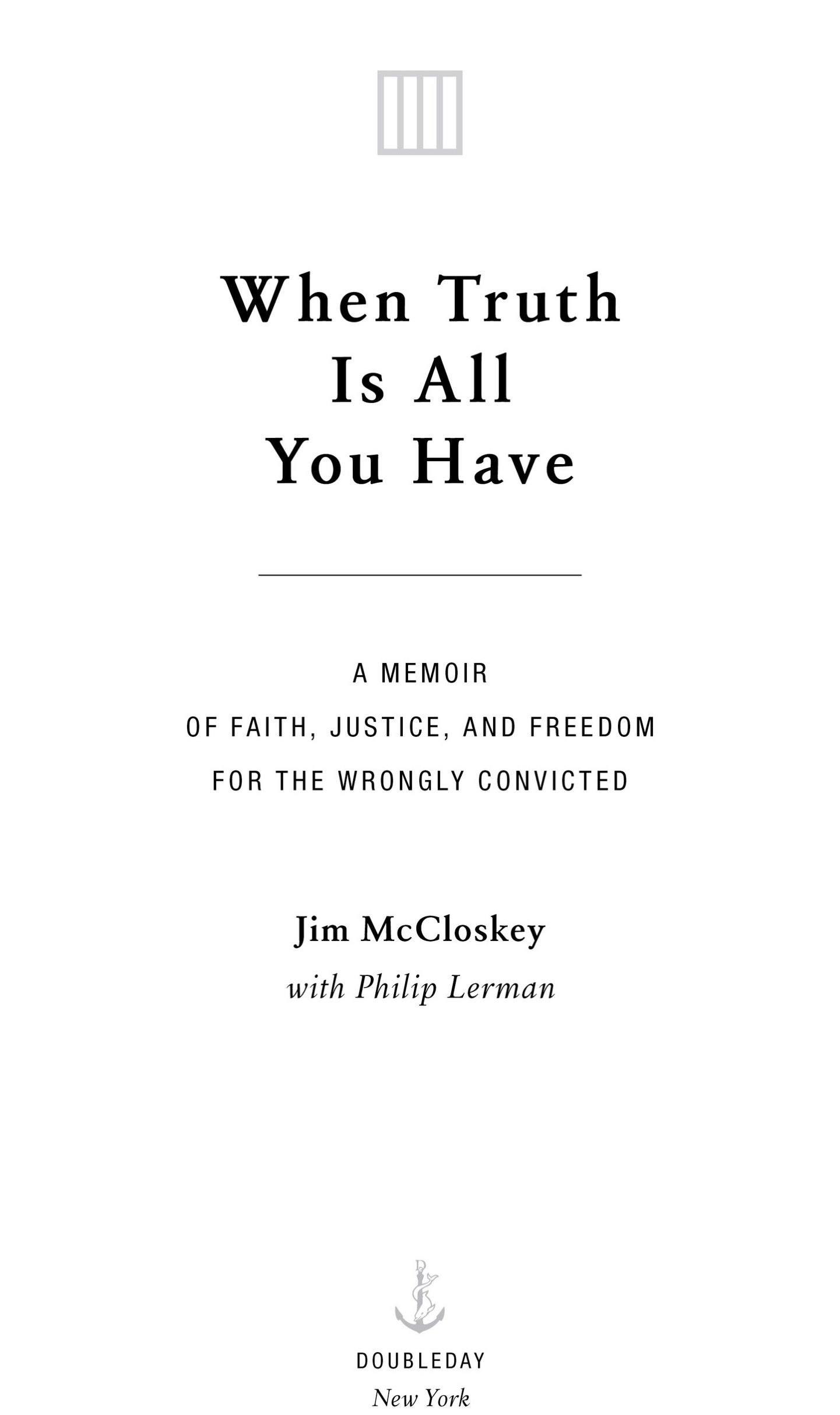Contents
Landmarks
Print Page List
Copyright 2020 by Jim McCloskey
Foreword copyright 2020 by John Grisham
All rights reserved. Published in the United States by Doubleday, a division of Penguin Random House LLC, New York, and distributed in Canada by Penguin Random House Canada Limited, Toronto.
www.doubleday.com
DOUBLEDAY and the portrayal of an anchor with a dolphin are registered trademarks of Penguin Random House LLC.
Cover photograph Psycho Shadow/500Px Plus/Getty Images
Cover design by Michael J. Windsor
Library of Congress Cataloging-in-Publication Data
Names: McCloskey, Jim (Minister), author. | Lerman, Philip, author. | Grisham, John, writer of foreword
Title: When truth is all you have : a memoir of faith, justice, and freedom for the wrongly convicted / Jim McCloskey with Philip Lerman ; foreword by John Grisham.
Identifiers: LCCN 2019054453 (print) | LCCN 2019054454 (ebook) |
ISBN 9780385545037 (hardcover) | ISBN 9780385545044 (ebook)
Subjects: LCSH: Judicial errorUnited States. | McCloskey, Jim (Minister) | Centurion Ministries. | Church work with prisonersUnited States.
Classification: LCC KF9756 .M33 2020 (print) | LCC KF9756 (ebook) | DDC 365/.665092 [B]dc23 LC record available at https://lccn.loc.gov/2019054453 LC ebook record available at https://lccn.loc.gov/2019054454
Ebook ISBN9780385545044
ep_prh_5.5.0_c0_r0
Contents
To my brother, Richard McCloskey, and my sister, Lois McCloskey
In memory of our mom and dad, Mary Fisher McCloskey and James C. McCloskey
Down here next to me in this lonely crowd
Is a man who swears hes not to blame
All day long I hear him cry so loud
Calling out that hes been framed
B OB D YLAN, I S HALL B E R ELEASED
Certainly, this man was innocent.
L UKE 23:47
FOREWORD
There are thousands of innocent people convicted and locked away in prison. Most Americans, or most white ones anyway, do not believe this. Those with darker skin know better because they have seen and lived this reality. But since the vast majority of Americans will never be affected by wrongful convictions they are not concerned with them. They see another sensational story of an exoneration and pause long enough to say, What a shame. Which is usually followed by: But he was probably guilty of something or he wouldnt have been convicted in the first place.
Few people care enough about wrongful convictions to volunteer with an innocence organization. Few even know how their elected officials vote on innocence issues. Wrongful convictions are on no ones list of our most important problems. Occasionally, when an exoneree retaliates with a big lawsuit and the taxpayers are forced to pay millions in damages, this gets attention and causes resentment but nothing changes. We hear the common refrain that the system is broken but there is little effort to fix it. So wrongful convictions continue, and the few lucky inmates are exonerated years later, while the majority serve long sentences for crimes committed by someone else. Life goes on for the rest of us.
With so little concern for the problem, why, then, do a handful of people dedicate their lives to freeing the innocent? I know some of these heroes: Peter Neufeld and Barry Scheck, who founded the Innocence Project in 1992 and have guided it to 367 DNA exonerations; Rob Warden of the Center on Wrongful Convictions at Northwestern, a group of advocates responsible for 30 exonerations to date; Emily Maw and the Innocence Project New Orleans, now with 36 exonerations; Shawn Armbrust of the Mid-Atlantic Innocence Project, with 36 clients walked to freedom. I could go on, but at the risk of neglecting someone or some organization, Ill stop here.
At any given time in the United States, there are about fifty innocence organizations at work. Most are attached to law schools and use students in their clinics and workshops. A few are freestanding and rely upon the generosity of others. And this does not include the tens of thousands of hours of pro bono work by big law firms and their attorneys who are committed to equal justice.
Each year one or two innocence organizations will fold because of a lack of funding, while one or two new ones will raise some money and open for business. There is never a lack of clients and every innocence group is deluged with letters from prison. Almost all receive help from private lawyers willing to work pro bono because they believe in justice. What the innocence organizations do not get is funding. Our flawed systems do not recognize the problem of wrongful convictions; thus, there are no public dollars to investigate bad convictions and litigate claims of relief. The funding is all private, from individuals and foundations, and this is unlikely to change.
Convicting an innocent person is relatively easy. Just put together a few of the usual causeslying snitches, bogus forensic experts, cheating cops and prosecutors, a sleeping judgeand the jury can be convinced. On the other hand, exonerating that same defendant is virtually impossible. It takes years, some luck, and at least $200,000 squeezed from private donors.
And it also takes an advocate who is tireless, fearless, and dedicated to justice.
A man like Jim McCloskey, the dean of all innocence advocatesThe Exonerator.
Forty years ago, when he was a seminary student at Princeton, Jim founded Centurion Ministries. He was neither a lawyer nor a reporter, but he was convinced that there were (and are) a lot of innocent people in prison. He gave up his plans to become a minister and instead dedicated his career to freeing the wrongfully convicted. As of today, sixty-three men and women are free because of his dogged efforts.
This book chronicles his unique journey. Jim started with nothingno experience with the criminal justice system, no legal training, certainly no moneyand he built Centurion Ministries into one of the most successful and important innocence organizations in the country.
In the pages that follow, Jim tells his remarkable story, and you will meet the amazing people who, though innocent, somehow survived in prison, most of them for decades. You will meet the New Jersey inmate who convinced Jim he was innocent and whose exoneration led Jim to follow a calling to spend his career freeing the wrongfully convicted. And the Texas inmate who spent ten years on death row for someone elses murder before Jim walked him out. And two of Jims clients, men whose executions he witnessed and only later came to question their innocence.
Ive written one work of nonfiction, a story about two men who were wrongfully convicted in Oklahoma. The research was brutal and the writing took forever, but the story was so compelling I didnt want it to end. The same can be said for all the stories of wrongful convictions: They are so good because they are so tragic.
Jim could write a fascinating book about each of his cases, all sixty-three of them now, and the pages would turn. However, limited by time and space he has chosen his best. This book is far too thin and left me wanting more of Jims war stories.
Several years ago, Jim invited me to Princeton for the annual Centurion Ministries gala and fundraiser. It was a wonderful evening of celebration and made me feel that somewhere in the depths of the quagmire of our legal and judicial systems there are small victories to cheer about. The actor Brian Dennehy, a friend of Jims, was there and served as the master of ceremonies.

